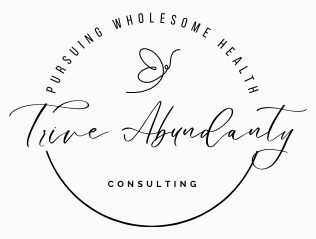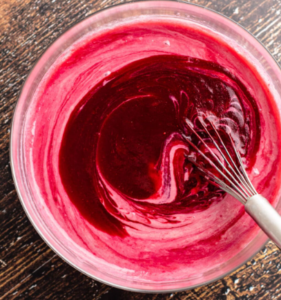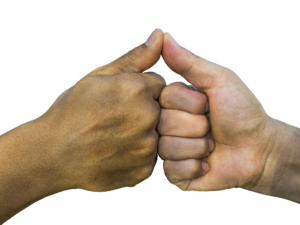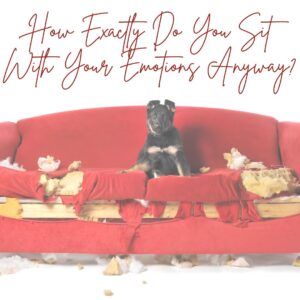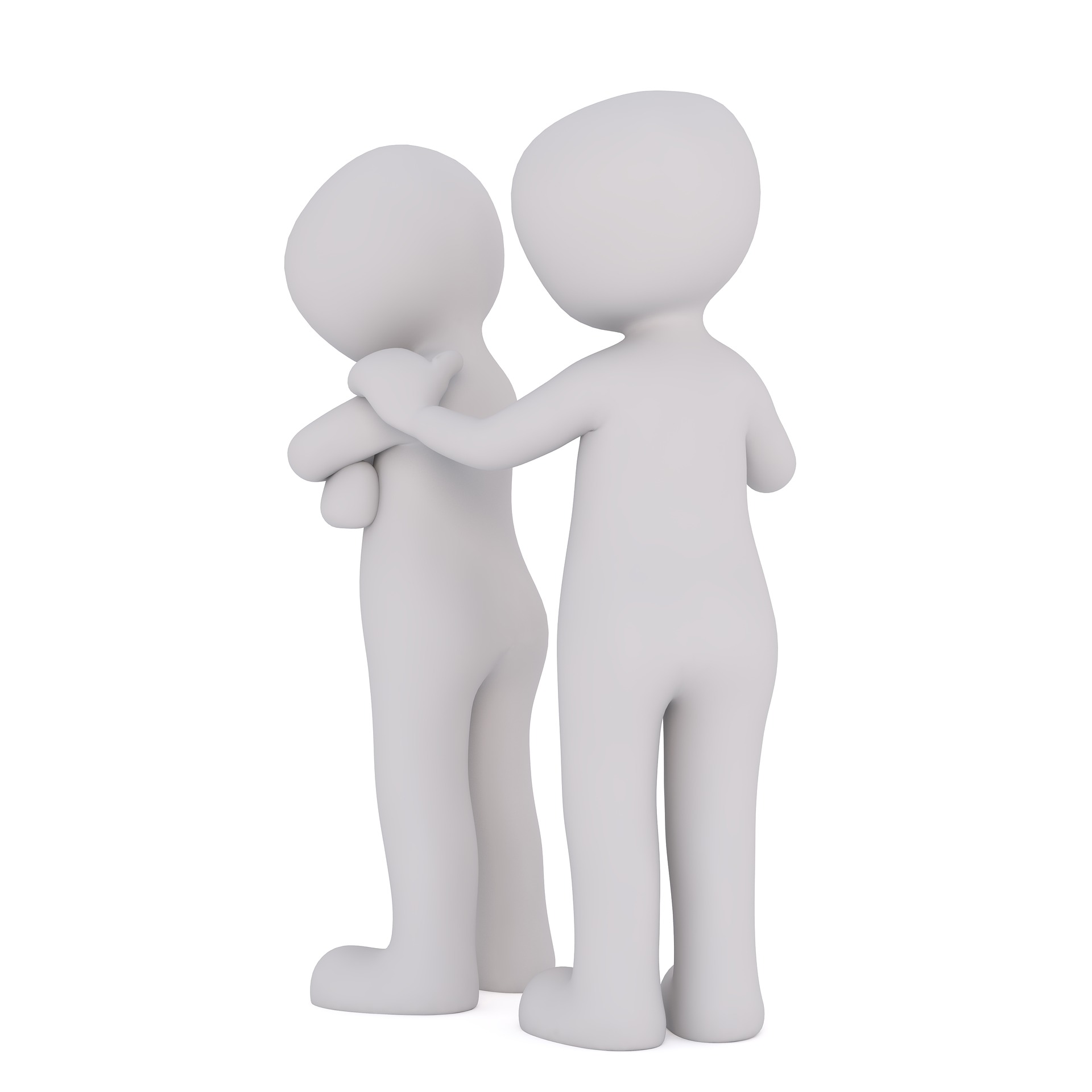This is post 23 in the Living Fully Alive blog series. Please consider reading the posts in the order they were published for the best learning experience.
Once you have begun identifying how you may have abused yourself, (I’m beginning to see that one of my nonverbal assaults has been that I don’t measure up, that my best is never enough, or something along those lines), begin asking yourself whether what you are upset about is worth abusing yourself over.
If I treated a little child the way I have treated myself for so many years, what would that little kid need from me before she would be able to forgive me and trust me again?
A big honking, sincere apology for sure. I would also need to see lots of proof going forward that the apology wasn’t just empty words.
I recognize one area in my life where I have definitely done this. This was probably ten years ago or so. A new workout program had just come out that systematically guided you in building strength. It had this one-rep-max test you were to do with each exercise to determine what was the right weight to choose to get the desired results. The one-rep-max guidelines were to lift a weight with good form for x amount of times. I found I could lift really heavy with good form. I proceeded to do the program with what I thought was my right weight to use. The only thing is, I started to have really tight muscles in my neck and shoulders. My Chiropractor had quite the job trying to undo what I caused by those workouts. I also needed to take supplements to help with the tightness. I can’t believe now how long it took me to wise up. Way longer than I care to admit. But after enough pain (pain can be such a persistent teacher sometimes) I finally realized, ‘who cares if I build more strength, if my body is always in pain? Who said I had to constantly build more rather than just be happy with a maintenance level of weights that was going to be my happy max?’ I finally listened to my body. My body had been telling me all along that even if I can have externally good form, the weight was not agreeing with my body. My body had to compensate in all sorts of ways that messed up my shoulder muscles. My body really was saying to listen and be kind. I finally decided to be kind. Why did I push my body this hard for so long despite the issues? I would not have pushed others, much less a little one, to do something that was causing her so much trouble. What was I saying to myself subconsciously all along?
This doesn’t seem to be a very emotional example. When I dig deeper, maybe something else will surface where emotions will become involved. I know I will discover other places that are more emotional.
Here is the pathway to reconciling so I can be in a good, healthy, and honoring relationships with myself.
Just as we have learned in the session about validation, we need to start by acknowledging what we have done, and how we have caused hurt to the little one inside of us. It’s a little odd to apologize to myself for all the ways I have abused myself – little me, so to speak. But I have done it a couple of times now and it actually helps. It is very important to validate the pain I caused to little me.
Speaking truth in place of the harshness is next. This is where I feel it is extremely helpful to picture myself from one of my childhood pictures of a two or three-year-old.
I may apologize for things I’ve partnered with the enemy with directly through listening to his lies, or it may be stuff I have come to believe about myself from what my parents or others said to me, or neglected to say that they should have said. Either way, I have taken it and been running with it instead of defending little me and speaking truth. By using those words and actions from the people that abused me in any way, I have been empowering them and become the abuser long after the original abusers left my life. I have to stop empowering the abusive words of others. It is normal to feel angry toward the person responsible for introducing these lies into our lives. We may have a real desire to see justice served. Since anything hurtful that has ever come my way, came ultimately from the enemy, using some people in my life as pawns to execute his attack, my chance for pay-back is to stop listening to what they spoke over me and choose to redesign my thoughts and beliefs to agree with God’s. It breaks a cycle the enemy set up and thwarts his plans like no act of revenge toward the person he used ever can. By breaking that cycle and actively stopping to treat myself the way someone treated me, I gain true freedom. As a side note, Abi mentioned that anyone who treats others horribly and abusively, is doing the same thing to their little version. Not that this excuses it but it can help me gain some perspective.
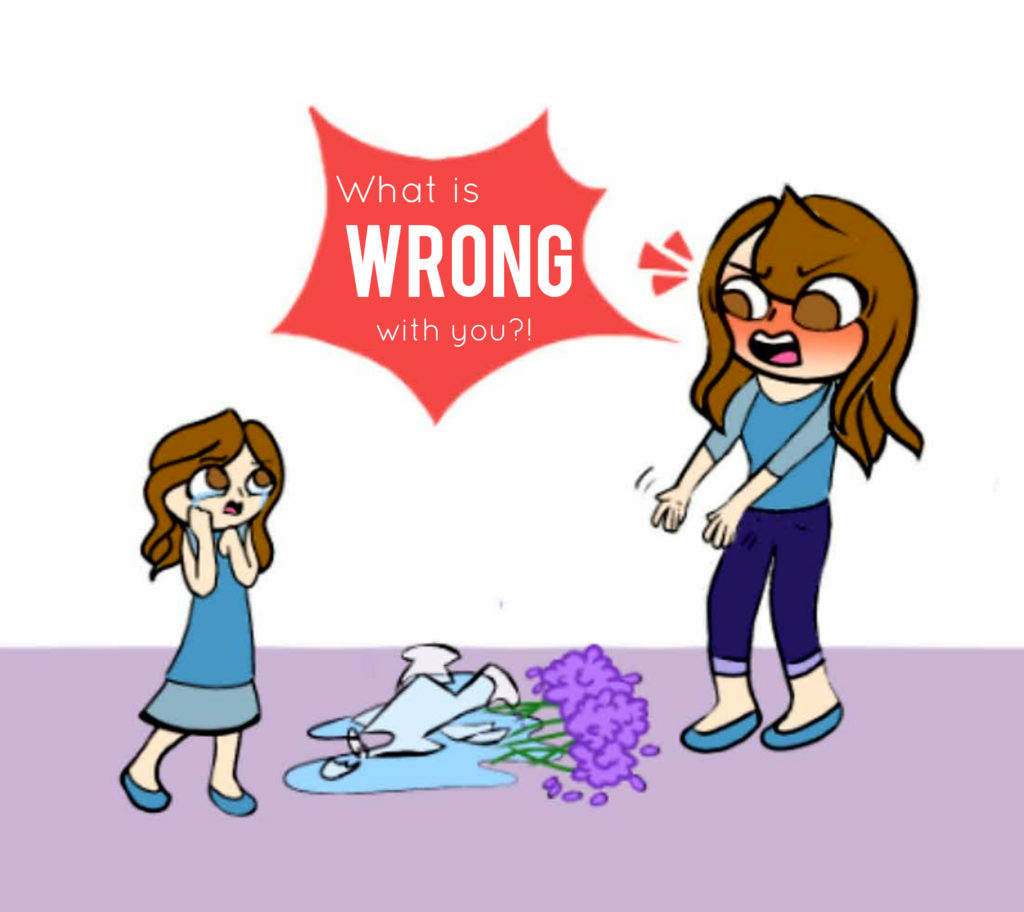
Copyright 2019 Miriam Hosoda
Something they said in class really hit home. They said “When you are at war with yourself, you drain your resources.” They likened it with real war. In a real war, the country and the people get sucked dry. Everyone is going without, everyone is exhausted. I know I have been at war with myself. I just haven’t identified all areas yet. But I know because of the exhaustion. I know because I feel drained all the time, don’t want to take on more stuff. Just love to be left alone and yet don’t feel like I get recovered, because the war is not over, and I still need to be on the alert. When I’m at war I can’t connect to my heart. I can’t dream, because I don’t know if it’s even realistic. I don’t know what I want, because everything is eaten up by simply surviving. Dreaming and wanting are limited to basic needs and not what really makes me come alive.
When I was a little kid, my highest authority was my parents. They represented God to me. But I am no longer a minor. I have come of age. Now as an adult, I am my highest authority. I represent God to myself. It’s my job to treat myself the way that God treats me. This reminds me of how so many kids can’t wait to become adults so they can finally do everything they want and not be told what to do. But we all find out quickly that even adults don’t get to do what they want all the time, especially not if they belong to God. But even belonging to God, I have the gift of free will. I have been given the power as to whether or not I allow God’s love towards me or not. God does not force himself on me, he could, but he chooses to submit to my free will and respects my yes or no. This is huge. I can’t just wait and say, “If he wants to do something, he can do it”. I have to take ownership and make the choice to keep myself open to the love of God and to learn how to cut down whatever barriers (especially the subconscious ones) I have put up that keep him out.
It is so important to see and treat myself as a valuable human being. If I don’t, what kind of God am I reflecting to myself? I am here as an ambassador of God. I represent God not just to others but also to myself. God wants me to love myself, he wants me to be his hands, feet and words to myself, as well as to others. If I am not the safest person in my life, I need to investigate why not and find ways to reconcile with myself until I am the person I can rely on and trust most.
To do that, I need to find out how I have wronged myself and forgive myself for doing so. The reason I need to repent from self-hatred is because where there is self-hatred, there is also self-destructive behavior. God showed us through Jesus that the only way to break the vicious cycle of sin in all forms, including self-hatred, is through love, forgiveness and sacrifice. Since I am an adult now and have the power to choose to represent God to myself well, I must learn how to nurture and in a sense re-parent myself in any past memory where there is pain.
Some Christians are said to argue that loving themselves makes them self-focused and prideful, using this as a reason to continue to be hard on themselves. However, when I believe I am bad, enough to hate myself, I am in essence judging myself, which will result in shame. Shame in turn drives me to hide the bad parts from the public eye because I don’t want them to find out my inadequacy. If I get confronted about things, operating from shame, I will likely take a self-defense stance and deny there is anything to admit to. On the other hand, if I have overcome my self-judgment and self-hatred and am no longer driven by shame and fear of being found out, then I become much more receptive to conviction and confrontation. If I feel safe and loved regardless, because I have given up the judge position, I can more easily look at my shortcomings with honesty and embark on a journey of growth rather than denial.
Where do we go from here?
Go through your past and see where you’re holding un-forgiveness toward yourself for mistakes you’ve made.
Forgive yourself for how you’ve treated yourself internally.
Forgive yourself for outward actions, how you’ve hurt others, failed at something, etc.
God’s heart for us is that we would forgive, others and ourselves. Hating ourselves keeps us in a destructive shame and self-hatred cycle. Not forgiving ourselves ties us to the thing we don’t want.
Once we have forgiven ourselves, Abi cautioned us to be careful and patient with the reconciling process. Again, this is a bit mind bending for some of us… but she likened our little versions like little children that have been locked in a dog kennel. Letting them out is the step of forgiving them. If they are like real children, they will still be scared, though, not sure if they can trust for real. She said it might take time for our little versions to be courageous enough to come out and speak. I think what she meant by this is that as we try to listen to our heart, and if we don’t hear anything, we should be compassionate and patient, not give up listening but also not start attacking ourselves for not trusting quickly enough. Repentance was the first step, reconciliation is a slower second step. During the process we need to be aware to give ourselves grace and compassion.
She even modeled to us how to speak to our heart: “Heart, I give you permission, that if I fall back into my old ways by accident, to scream to get my attention, because I want to learn how to treat myself the way God would.”
Any memory we find, we are to imagine ourselves as little children and repent to those little children for all the things we have done to them, and then establish ways to begin being kind to them. We now have the capacity to nurture, comfort and treat ourselves kindly. How will we treat our little one going forward? Some of us may not know what that would look like because it has never been modeled to us. Whenever we are not sure, we can ask God what kind of dad he is and treat ourselves in those ways. When we fail at something, instead of beating ourselves up we can speak to ourselves saying, “It’s ok, you have figured out one more way how not to do it. You are learning. You are ok. You can grow from this.”
Let us start a self-compassion revolution!
To learn more about the Living Fully Alive Course, click on the hyperlink.
